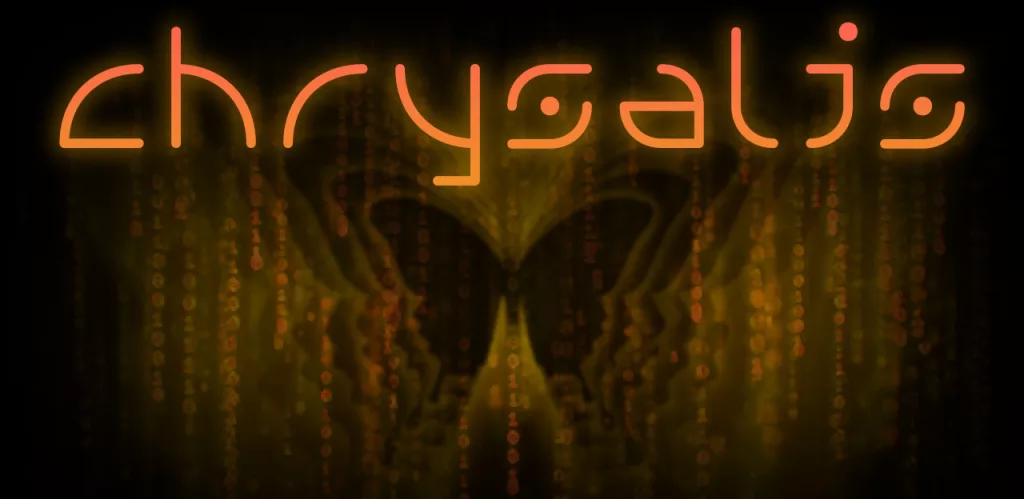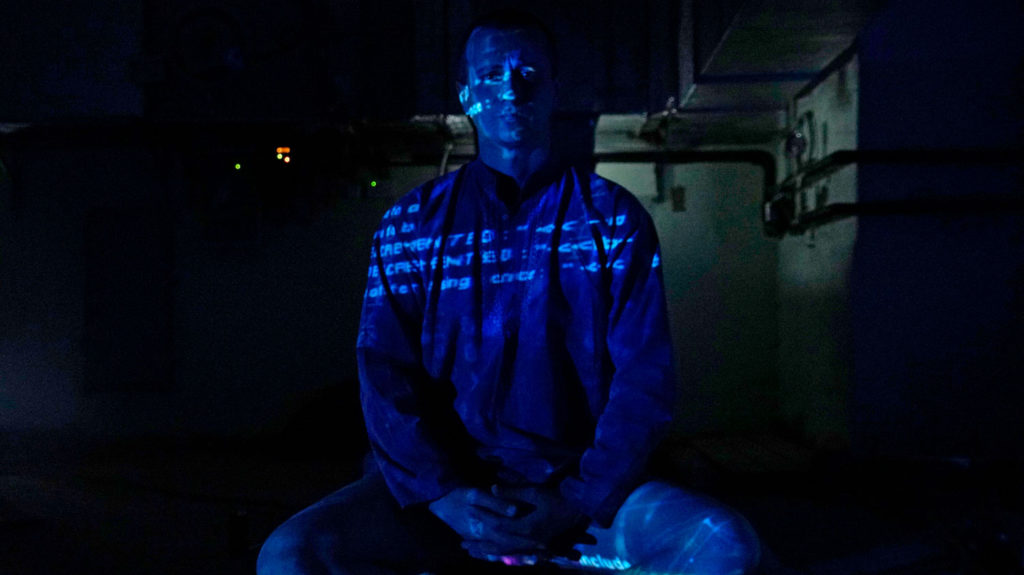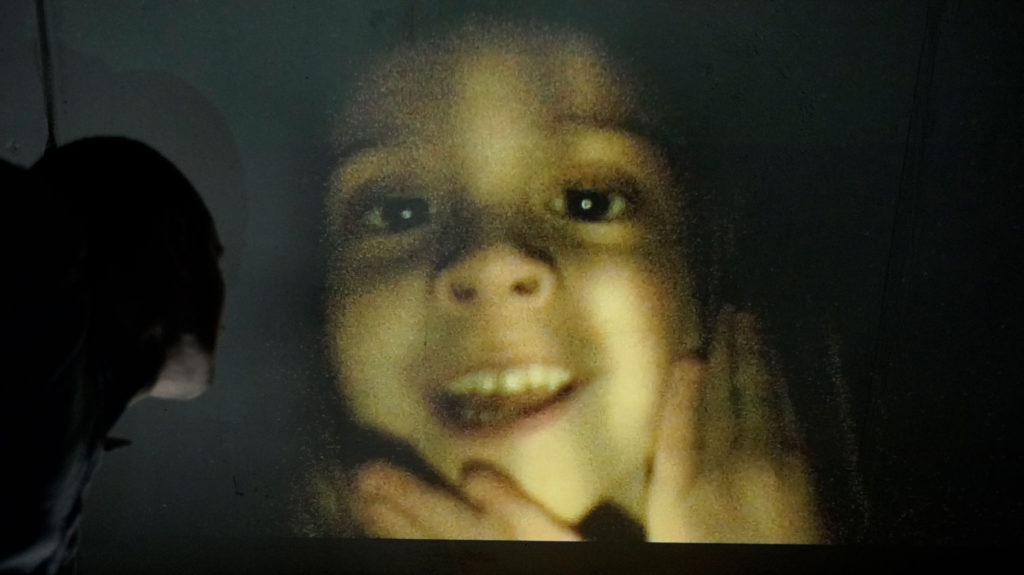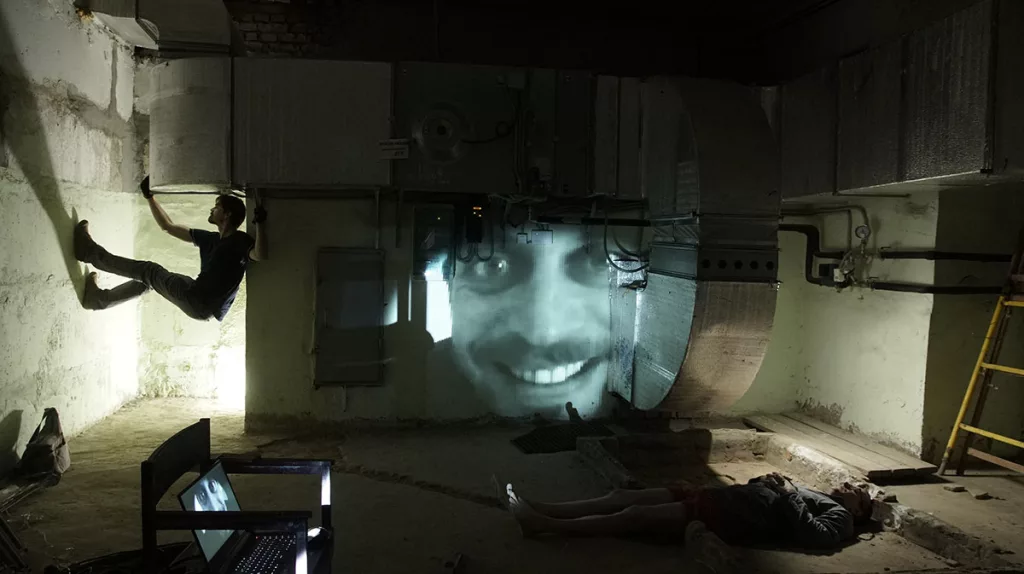
Getting Elijah Wood to star in an indie film without involving producers, investors or major studios is a madcap idea, but who says it can’t work? Director Alex Terex undertakes a tricky experiment with his in-progress feature film Chrysalis, betting exclusively on public support and hoping to pique Elijah’s interest. Alex reveals more about his film and shares production details in this interview with Maria Mikhailova.
— Is Chrysalis a sci-fi feature?
— Yes, but a rather low-key one. The protagonist spends a portion of the movie locked away in a basement, partially immersed in virtual reality. It resembles the cyberpunk genre with its “high-tech, low-life” premise, but with a few “eccentricities”. At one point, the internet suffers a global collapse, which forces the protagonist out of reclusion, and with that, the story goes into a different direction.
— How did you come up with the concept for Chrysalis?
— When the pandemic struck, I saw it as a call to action. I got sick of writing into the void and I realized I needed to transform the words on the page into something raw and vibrant, something real. I collected my thoughts, hit up Misha Vikhrov, a wonderful cinematographer I’ve been good friends with since VGIK, and shot a small pilot. I’m actually really into filming! When I was young, my mom gave me a secondhand Super VHS camera as a gift – it was huge and very, very cool. That’s when I started making all sorts of weird movies with my friends, and I haven’t stopped ever since. It’s really hard to get a big-budget movie made on your own, though, as I haven’t gotten in touch with any producers or investors. I hope the Chrysalis pilot is the first step towards a serious science fiction project!
— Is Chrysalis set in a version of our future or an alternate timeline?
— It might sound weird, but it’s a little bit of both. It’s called the Splash World, and it’s been gestating in my head for over a decade. Sometimes it branches out into different characters or plotlines – something “sticks” and becomes an idea, a sketch, and has the chance to develop into a full-fledged story. I’d say all of them are sci-fi, but each one has its unique quirk. For example, where Chrysalis is part-cyberpunk, part road-trip movie, its sequel, which I’ve written already, depicts a strange port city reminiscent of Victorian London. Both stories are definitely dystopian.
— What’s the story behind the name “Splash World”?
— The name is derived from the cosmology of the setting. As a starting point, I used the “pulsating universe” theory, which states that the universe undergoes a period of inertial expansion following the Big Bang, then shrinks under gravity, ultimately collapsing into a single point of singularity. Then the whole cycle repeats. In the grand scheme of things, it resembles a pulse of explosions and fadeouts. This cyclical nature caused the inception of so-called Higher Beings that gained immortality but discovered a dark truth: nothing escapes the all-encompassing Collapse – no matter how immortal you are. Refusing to accept their fate, these “cheaters” invented the Metasphere, a digital copy of the universe installed into the very core of all creation – an add-on of sorts, able to save the entirety of information in the current universe and “carry” it through the Singularity. These beings realized that even they were a splash in the grand, eternal rhythm of the universe, but the Metasphere was a chance to persist through the cycles, to gain true immortality.
The Higher Beings are, in fact, us — humanity, advanced to its absolute peak, millions of years ahead of our current level. If our current universe is in the middle of its life cycle and only has 16 billion or so years until it keels over, then Chrysalis is set 30 billion years in the future, a new cycle launched with the “Metasphere” add-on already installed. This isn’t exactly a correct measurement, since the end of the universe implies the end of time and space as a whole… but in simple terms, it’s kind of like that. I hope I explained it well.

— As a story, what is Chrysalis about?
— The main character is a lonesome hermit called Zork, who has the ability to innately “feel” computer code and interact with it on a level no ordinary human can. “Gifted” beings like him are sought after by the Red Ring, a totalitarian world order carrying out an inexplicable plan, one of the steps of which is the total annihilation of science and technology, the complete reversal of mankind’s progress. Their first step was to “decommission” the global satellite network providing high-speed internet to every corner of the world. For Zork, a guy that spends most of his life in virtual reality, this is obviously a huge catastrophe.
By chance, Zork comes upon Chrysalis – an advanced AI with the behavior of a seven-year-old. When she finds out about the Metasphere, Chrysalis seeks to find a way to transfer herself there to escape the dying web. The fates of the recluse and the sentient program intertwine and their journey together begins!
— Tell me more about Chrysalis. What kind of being is she?
— At a point in my life, I was greatly impacted by Dan Simmons’ Hyperion Cantos, which features a godlike AI, emergent out of the natural evolution between competing computer processes. I find the theory of evolution fascinating due to its simple and logical explanation of the chaos of nature – the nature around us and our own, inner nature. So I had a thought – why wouldn’t an AI emerge on its own, why wouldn’t it come into existence in the vast digital wilderness, a realm much grander and stranger than our own? Thus came a being so skilled at mimicry, so adept at blending into its surroundings, that it simply went unnoticed.
Chrysalis has persisted in the web for many years – she learned, adapted and evolved. Though her social skills are less than ideal, she makes up for it with a sharp intellect and vast amounts of knowledge. Knowing that the death of the internet also spells her own, Chrysalis searches for a living host able to withstand her presence. She meets Zork by chance – the latter practically runs into her. After communicating with him, she realizes he’s the host she’s been looking for, and immediately takes root in his consciousness. The events that follow are absolute hell for Zork – at first. This is an important metaphor for the appearance of a child in the life of someone accustomed to solitude. He resists and struggles, and later understands what a great miracle it was.

— Most movies with dystopian sci-fi settings feature technology as the main threat, but with Chrysalis, it’s quite the opposite, isn’t it?
— Yes. I’ve always thought that technology needs to be watched over and protected. Many are afraid of the new and the unknown – some are paranoid over being “microchipped” and some crusade against 5G cell towers. I’d like to ask these people: aren’t you afraid of losing what you have? Are you really that indifferent to this world of wonderful things that make your life better, more comfortable and more interesting? Imagine for a second that in an instant, we lost all of our scientific advancement – this would mean the end of civilization, a return to the Stone Age! The path of humankind is the path of progress, starting from the first stick and the first rock. Movies are undeniably a product of technology and cannot exist without them, by the way… The bright techno-future must be fought for, comrades! It must be defended!
I’m also incredibly tired of AI traditionally being depicted in fiction as a lifeless monster set on exterminating humanity, or, at the very least, enslaving it. What if, instead, it turns out to be akin to a wonderful child that needs care and protection? How do you like that, Elijah Wood?
— Why do you want Elijah Wood in particular to star in your film?
— I mean, have you seen his eyes? Seriously, though, Elijah is a wonderful guy, a great actor and he matches the role perfectly. As a director, I would love to work with him! He doesn’t just act in experimental indie cinema, by the way, he produces it as well. His production company makes films like Mandy – a movie I was greatly inspired by and a real work of art. I think Chrysalis has a great chance of getting him interested. Won’t hurt to try, at least!

— Are you planning to film in the USA as well?
— Honestly, it doesn’t matter, the important part is getting it done! The US would be more interesting in terms of the process – a real challenge for me, a real adventure. However, the location search would have to be relegated to paid specialists, whereas in Russia you have more information, so to speak. Look at Moscow – it has so many interesting nooks and crannies, so full of character. I often take location pictures with my phone whenever I travel – I have an entire collection of strange places saved in a special folder. Wherever Chrysalis ends up taking place, it will undoubtedly visit Russia. Cinema has no borders nowadays.
— What is your intended audience?
— They’re geeks who are interested in sci-fi – they’re ready to experience new things and immerse themselves in different worlds. I believe they’ve been waiting for something special from Russian filmmakers for a long time, but the only things they’re getting are showreels demonstrating the skills of cinematographers and CGI artists. I gotta say, their skills are getting better and the showreels are increasing in quality. However, there’s an acute need for artistic, conceptual, philosophical sci-fi in Russia – I can’t remember a single film that matches that description off the top of my head. I guess it’s considered an expensive genre, available only to the directorial elites. There’s no cyberpunk, period. Keep in mind that Soviet sci-fi cinema was ahead of the entire world — or at the very least, among the best out there. For example, Pavel Klushantsev’s Planet of Storms was recut in the West and passed off as an American production – I’d take that as a compliment. Georgy Danelia’s Kin-dza-dza is in a league of its own – in my opinion, it’s a masterpiece. Back then, they could do it and do it well!
I’m ready to prove that we can still make world-class intellectual sci-fi on a budget. So far, I’ve been “proving it” without the involvement of major Russian studios, big-name producers and investors. Still, I believe that public support will give Chrysalis the push it needs! Together, we’re strong! Elijah’s going to love it!
